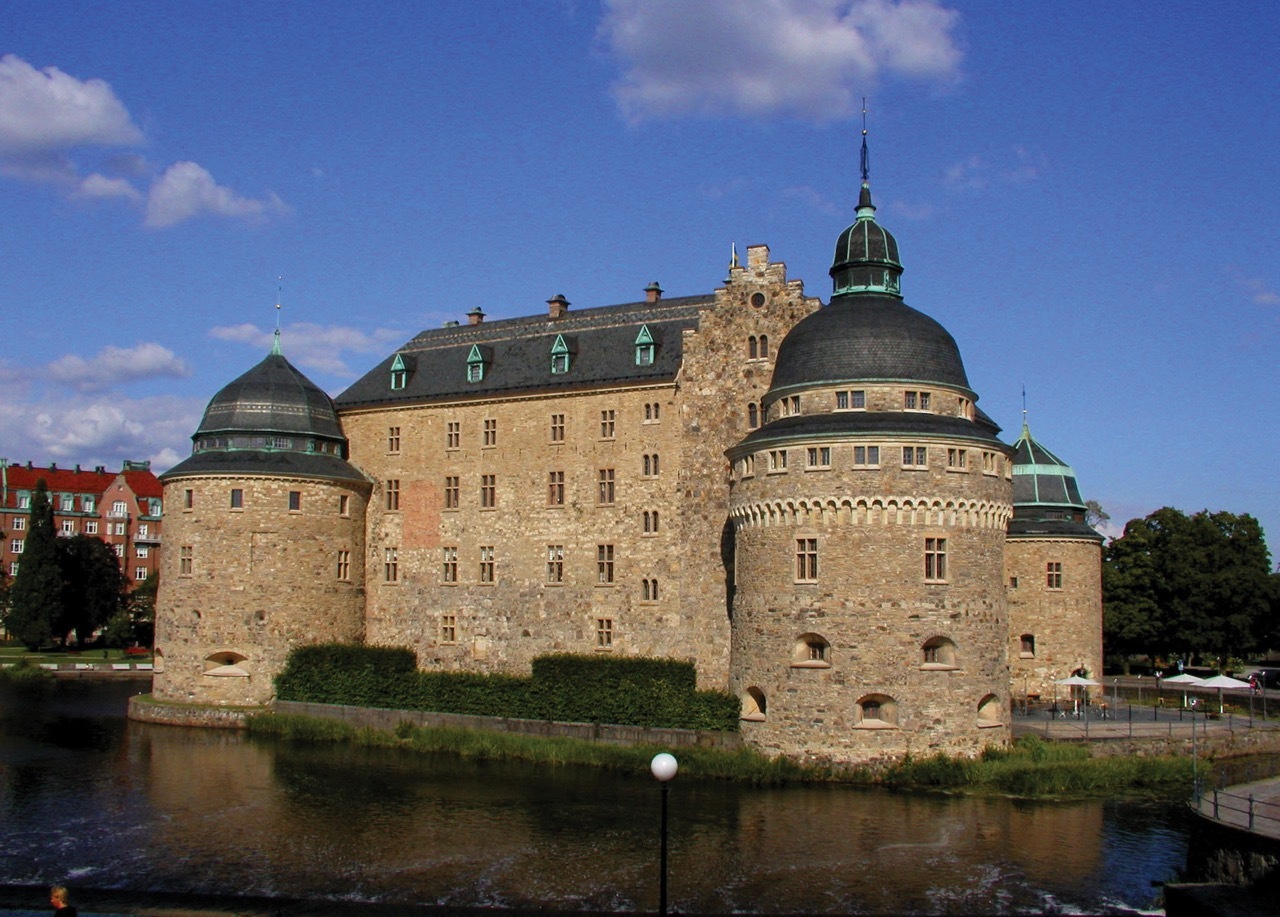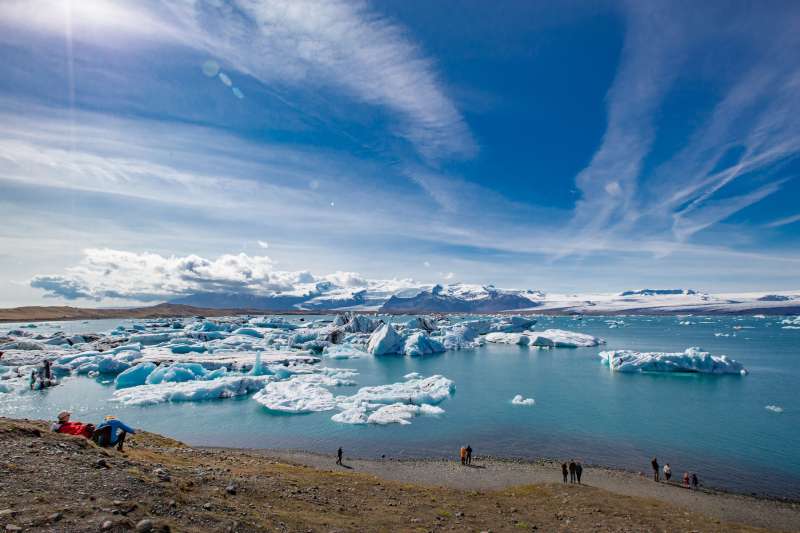There’s a reindeer parked in front of a massive ice-covered mountain. A tiny waterfront village of pink, yellow, green and red houses trimming a glassy lake. An inn with a roof so perfectly snow-lined it looks as though sheets were cut to size and laid there.
Scrolling through Nordic Visitor’s Instagram page is bound to melt the hearts of even the staunchest seekers of tropical trips. The Reykjavík-based travel agency has been placing global travelers in these picture-perfect scenes for decades now, with thousands of travelers trusting its experts based in Reykjavík, Stockholm and Edinburgh to help them find unforgettable and authentic experiences in Northern Europe.
It’s fair to say Nordic Visitor has grown a lot since its beginnings as “Reykjavík Travel Service,” the tourist information center, internet café, and bicycle rental shop that Ásberg Jónsson launched in 2002. In the years since, Nordic Visitor acquired other brands, and played a big hand in forming the larger collective of travel agencies and brands called Travel Connect. The tourism company, founded in 2021, serves more than 100,000 travelers each year across 12 destinations in Northern Europe.
What hasn’t changed in the years since are Nordic Visitor’s core values. Quality, dedication, trust and personal service guide every customer interaction, and come through loud and clear in talking with anyone who works at the company.


Nordic Visitor at a glance
Nordic Visitor looks for more payments automation, security
Magnús Freyr Erlingsson embraced this culture when he joined Nordic Visitor in 2016 as its first head of collections and data analytics. The company knew then that a less-than-stellar payment experience could erode against its promises to clients.
While Nordic Visitor could accept payment online, it wasn’t without some very heavy lifting on the part of staff. Travelers paid 20% at the time of booking and the full amount 30 days prior to arrival at their destination. While the first payment generally went fine, collecting the second was more problematic.
For one thing, Nordic Visitor couldn’t automate invoice reminders. For each outstanding balance, they had to manually create and send requests for the remaining amount. This was no small feat. At the time, they were selling 5,000 to 6,000 packages a year. Three employees were dedicated to invoicing and collections – full time. The process, tough enough to maintain at that current volume, certainly wouldn’t scale with the company’s plans for growth.
Another issue was that Nordic Visitor’s payments processor at the time wasn’t prepared to comply with new Strong Customer Authentication (SCA) regulation, which required two-factor authentication for paying online and support for 3D Secure (3DS) for card payments.
What’s more, Nordic Visitor wanted to head off problems that the payments experience was starting to have on their customer experience. Manual invoicing didn’t provide clients with good visibility into additional fees, and additional charges due to FX rates and fees sometimes surprised clients when they got their bank or credit card statements.
Taken together, the issues had nearly half of the customers experiencing some sort of issue around payment.

Flywire brings strong security, improves customer experience
Already aware that a new payments solution was needed, the halt in global travel brought on by the Covid pandemic gave the company a chance to closely review processes, and vet new software payment partners so it would be ready for an anticipated travel surge in 2021. It looked at several European-based payment software providers, and decided to go with Flywire in early 2021, going live in August 2021.
Processing and reconciling payments has been streamlined because Flywire is integrated with Nordic Visitor’s booking system – Corivo. Flywire brings several advantages. Payment reminders are sent automatically, and all payment processes digitized. Nearly all customers prefer to pay by credit card –98% – and Nordic Visitor offers a secure portal for digital payment in their card of choice. Flywire automates the currency conversion and the company receives payment, mainly, in Icelandic Krona. The travel agency also has satellite offices in Scotland and Sweden that receive payments in British pounds and euros.
Travelers are confident that their payments are secure, and with Flywire handling compliance matters, Nordic Visitor doesn’t have to worry about not meeting security regulations and frameworks.
“Flywire’s solutions are much more modernized and capable of handling new technology. Security was a main driver for choosing Flywire, along with the cost savings,” Erlingsson said.
Flywire has also saved Nordic Visitor time and money, and made clients happy by allowing them to pay securely online in local currency. With Flywire, customers can see exactly what they’ll be charged in their local currency – where before, they couldn’t really know until after they made the payment and got their bank or credit card statement.
“One of our main issues was customers contacting us after payment and saying, ‘this was much higher than we expected,’” Erlingsson said. “Once we started using Flywire, we really don’t have any of those cases.”
Those three Nordic Visitor employees who used to chase payments all day are happy too. “We can now find more exciting things for them to do,” Erlingsson said.

Savings
More payment process improvements on the horizon
That travel surge roared in. Find any “best or most” list put out by major travel businesses, and the locations served by Nordic Visitor are on it. The number of packages Nordic Visitor sells has nearly doubled to 10,000 in 2022 – and continues to grow each year.
Seeing real improvements in its B2C payment processes, Nordic Visitor is now looking at ways to streamline B2B payments. Cost allocation is one of its biggest challenges. It’s working to automate more of the accounts receivable process, and reduce bank and FX fees to save money.
In Flywire, Nordic Visitor has found a partner worthy of its core values.
“Flywire is a very forward looking company, and they are constantly working on improving their technology. We are as well. We try to use the new technology available at the time to improve our processes,” Erlingsson said.

